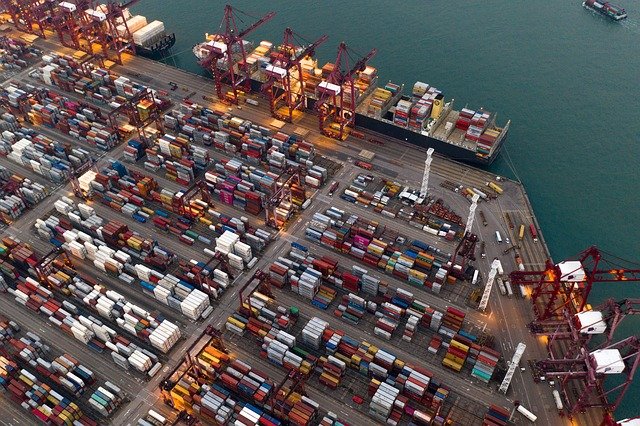
Image by bellergy on Pixabay
When it comes to moving your household goods internationally, the journey often involves a sea container navigating the ups and downs of the global shipping industry. As your trusted moving partner, we rely on this vast network to deliver the smooth, door-to-door service we’re proud to provide.
But the shipping market can be unpredictable, shaped by everything from demand for household goods (HHG) to wider global pressures beyond anyone’s control. Even with the best planning, unexpected challenges can crop up.
To help you stay in the loop, we’re sharing the latest insights from the British Association of Removers (BAR), which regularly publishes updates on the shipping market, alongside any other industry intelligence we think might be important. These reports give a clear and unbiased view of what’s happening and help set realistic expectations for anyone planning an international move.
Transparency is important to us. While we’ll always let you know personally if your shipment is affected by something, we think it’s helpful to understand potential risks from the start. By staying informed, you’ll be better prepared to handle any surprises—and we’ll be right here to make sure your move goes as smoothly as possible.
Download the latest BAR global shipping conditions update for latest updates.
What Should International Shipping Customers do?
The global shipping challenges we’re facing may be out of anyone’s control, but there are steps you can take to minimise their impact on your international move. At Bournes, we’re committed to keeping you informed, setting clear expectations on timeleines and cost, and working hard to navigate these challenges on your behalf.
Here’s how you can help ensure your move goes as smoothly as possible:
Book Early and Plan Ahead
Get your move booked as soon as possible and discuss your schedule with your move manager early on. The more time we have to plan, the better we can work together to manage any potential disruptions.
Be Ready for Delays
Expect that transit times might be longer than usual, and last-minute changes are always a possibility. Preparing for this in advance can help reduce stress if adjustments are needed.
Talk to your move manager before booking Flights and Accommodation
If your travel plans depend on the arrival of your shipment, we may advise you to wait to finalise bookings for flights or accommodation until your move dates are confirmed. Talk to your move manager first to avoid unnecessary complications.
Understand the Costs Upfront
Shipping challenges can sometimes result in additional charges. Make sure you discuss any potential extra costs with your move manager so you can plan your budget accordingly and avoid surprises later.
Remember, we’re here to guide you through every step of the process. If you have any questions or concerns, don’t hesitate to reach out to your contact at Bournes. And for more insights, be sure to check out the BAR guidance linked above. Together, we’ll make your move as seamless as possible!
Are these challenges specific to moving with Bournes?
No, the challenges highlighted by the BAR affect every industry relying on sea shipping, including every company in the International Removals and Shipping industry. If a moving company claims they’re not experiencing any issues securing containers, it’s worth asking for more details to understand how they’re navigating these widespread challenges and to ensure their claim is genuine.
At Bournes, our priority is helping you plan your relocation in the smoothest and least stressful way possible, and that starts with being realistic. We’re committed to transparency, setting clear expectations, and keeping you informed to help avoid unexpected delays or surprise additional costs further down the line.
We hope our industry colleagues and competitors share this approach, offering the same honesty and clarity to their customers, so everyone can navigate these global challenges with confidence.
Want to know more?
Please contact your Bournes representative if you have any further questions or concerns.

.png)









